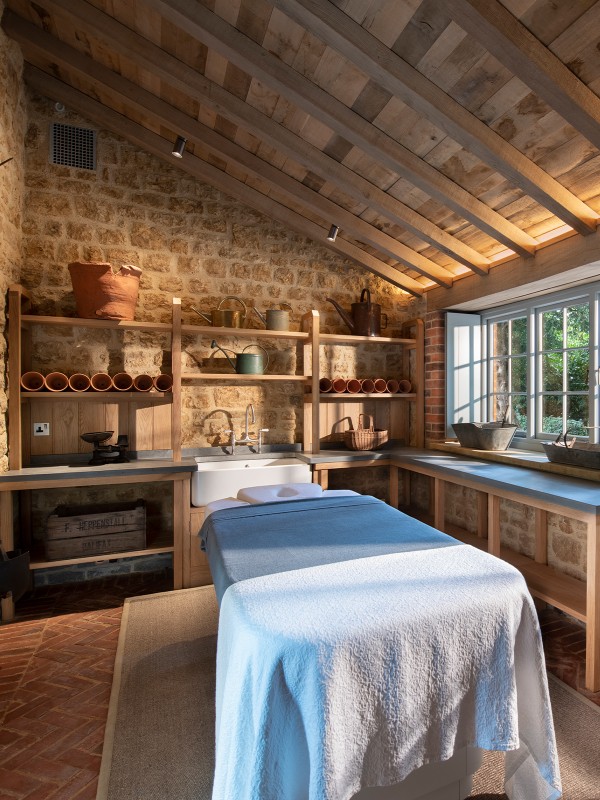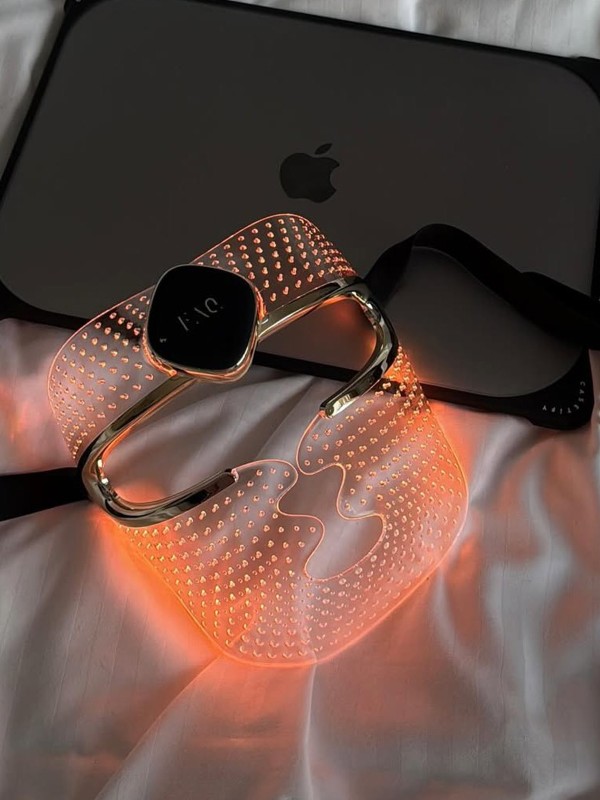What Nutritionists Eat For Clear Skin
Nuts & Seeds
It might not seem like there can be so much goodness in such a small casing, but nuts and seeds are packed to the brim with proteins and healthy fats, which is why Nutritionist Kim Pearson makes sure she gets her daily dose: “These are both important for skin structure and function, so I try to ensure I consume the optimum amount, mostly through walnuts and flaxseed in particular. Collagen and elastin, which make up the skin's structure, are both proteins, so consuming enough in the diet is very important.”
"Pumpkin seeds are my first go-to food for clear and healthy skin,” adds Henrietta Norton BSc DipNT, Harley Street Nutritional Therapist and Founder of Wild Nutrition. The main benefit of these little seeds is that they’re a great source of zinc, which isn’t just an important component is maintaining healthy skin, but “it also plays a role in regulating the production of oil and some of the hormones associated with acne,” she adds. “Pumpkin seeds are wonderfully easy to incorporate into the diet – I find they're a great snack for on the move, or the perfect addition to porridge or salads. If pumpkin seeds aren't for you, other foods such as oats, ginger and mushrooms are also good sources of zinc, providing the same nutritious benefits to the skin.”
Vitamin C
Many nutritionists are huge fans of incorporating vitamin C into their diets in some shape or form as it’s needed for collagen formation, which is important for strong skin. “It’s found in almost all fruits and vegetables, but the ones with the highest amounts include brussels sprouts, green and red peppers, oranges, and tomatoes,” says Charlotte Harrison, Expert Nutritionist at Spoon Guru. “Eating at least five portions of fresh fruit and vegetables a day guarantees I’m getting what I need for my recommended daily intake.”
Alexa Mullane, skincare expert and Founder of Potion London agrees: “I love broccoli, red peppers and kale to get my vitamin C intake – it’s a powerful antioxidant that helps to neutralise free radicals in the body (caused by exposure to pollution, the sun and cigarette smoke), and thus helps to prevent premature ageing.”
Garlic
Although it might leave us with no friends, garlic is a great food to help maintain clear skin – if you can stand it raw. “A favourite for combatting spots and clearing skin is garlic, which contains a compound called allicin that has powerful anti-fungal properties,” says Henrietta. “Acne has been linked to an overgrowth of the yeast organism Candida albicans in the gut, so anti-fungal natural medicines (like garlic and the herb oregano) can really help to support and rebalance. The only catch is that raw garlic is best if you can bare it, otherwise you can try adding it to your meal towards the end of cooking, just before it's ready to be served.”
Turmeric
Turmeric is basically a miracle spice to our nutritionists, particularly when it comes to protecting their skin: “I put turmeric in as many meals as possible,” says Alexa. “Turmeric is anti-inflammatory and anti-microbial and can help with skin conditions like acne.”
Henrietta is equally as keen on the help it provides clearing up spots: “Supporting the liver is vital for clearing toxins from the body and regulating any hormonal imbalances – both of which are contributing factors to acne. Turmeric has a high antioxidant capacity (denoted by its golden yellow colour) that works to protect the liver, and also has powerful anti-inflammatory properties to reduce inflammation in spot-prone skin. It's a wonderfully healing ingredient that can be added to anything from stews to curries, soups and more.”
Oysters
Some of them might find them an aphrodisiac, whilst others can’t stand the sight of them. Either way, oysters are good for the skin for a few reasons – first is that they’re a good source of protein, “which is so important for many body processes – not only does it help with detoxification in the liver, it is also high in nutrients such as zinc, which is an antioxidant that has been shown to help with skin healing,” says Terry Fairclough, Nutritional Therapist and Founder of the Your Body Programe.
Meanwhile, Alexa Mullane finds that oysters are also a high source of zinc, which, as previously stated is key to relieving acne. “It helps to fight viruses and bacteria and has powerful anti-inflammatory properties. Oysters have the highest levels of zinc, but red meat, poultry, beans and nuts also contain it.”
Water
It’s the one thing your mum tells you all the time, but it turns out she’s right – drinking water is really good for you, especially when it comes to your skin. “As our body’s largest organ, skin acts as an external barrier against foreign objects like bacteria, and it also flushes away toxins when we sweat,” explains Charlotte Harrison. “Without enough water, the skin is unable to sweat and perform this important function. The human body is made up of around 60% water, so we need to keep it that way!”
Not only this, but water also helps plump the skin and helps cells operate efficiently. That’s why Alexa Mullane drinks two litres a day: “And I eat whole fruit and vegetables that contain large quantities of water, such as cucumber, lettuce, tomatoes, peppers, cauliflower, spinach, broccoli and carrots.”
Avocados
The health food that sums up all millennials, avocados aren’t just good for a pretty Instagram picture – they’re full of vitamin E, which is found inside essential fatty acids in food. But they’re also good for symptoms of stress: “They’re a powerful antioxidant that is important for the immune system in times of stress,” says Terry Fairclough. “Stress has many negative effects on the body, including on our skin, but Vitamin E helps keep skin plump along with essential fatty acids. Stress also puts additional pressure on the liver, so reducing it can be really helpful in keeping your skin healthy.”
Oily Fish
“I eat oily fish three times a week, such as salmon, tuna and mackerel,” says Alexa Mullane. “The omega 3 in oily fish is essential for healthy, glowing skin – these fatty acids are responsible for the health of the skin cell’s membrane, which acts as the passageway for nutrients to get in and for waste products to get out of the cell. It also helps to keep skin cells hydrated.”
Rachel Clarkson, Founder of The DNA Dietitian also says the omega 3 is ideal for inflamed skin. “I often eat oily fish such as salmon and add chai seeds to my smoothie to make sure I get adequate amount of omega 3, which we know to be extremely anti-inflammatory. I personally think this helps my skin glow!”
Red Berries
From strawberries to raspberries, red berries are the fruit to consume to keep your skin clear, as they’re packed with useful antioxidants. “These contain a powerful antioxidant called betacyanin, which helps liver detoxification”, explains Terry Fairclough. “One of the main causes of unhealthy skin is a toxic overload – too much alcohol, medications, nicotine, high saturated diet, low fibre and protein, burnt meat, exhaust fumes are a few reasons why our liver maybe struggling. If our liver can’t cope the body will attempt to eliminate excess toxins through our skin, which is why we need the antioxidants that red berries give us.”
Probiotics
“A healthy gut equals healthy skin, so keeping on top of your gut health is oh-so important”, says Alexa Mullane, who always keeps gut-promoted probiotics like kefir close to hand: “Research has shown it helps with conditions like eczema. It is thought that when the gut is unhealthy, it ‘leaks’ toxins into the bloodstream which causes inflammation and contributes to skin conditions like rosacea, eczema and acne.”
DISCLAIMER: We endeavour to always credit the correct original source of every image we use. If you think a credit may be incorrect, please contact us at info@sheerluxe.com.






